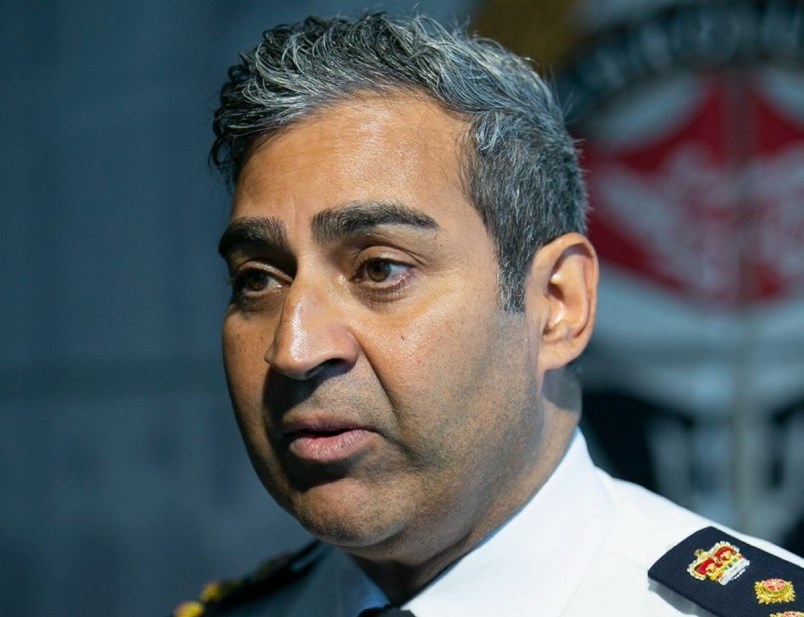Victoria Police Chief Del Manak said he’s open to the idea of a civilian-led team that could handle some of the mental health and addictions calls that have been downloaded onto his department.
But he cautioned that police will still be needed to deal with incidents involving violence and weapons or where somebody’s safety is at risk.
And he said efforts to establish a civilian-led response should be focused on adding value rather than looking for an excuse to cut his department’s budget.
“I agree with this,” he said in an interview Tuesday. “I want it to go ahead, but let’s not do it as a way to defund the police. It has to be a thoughtful discussion.”
Manak was responding to a push by Victoria city councillors this week to look for other ways of dealing with mental-health and addictions issues rather than relying on police.
Councillors Sarah Potts, Marianne Alto and Jeremy Loveday will ask their colleagues on Thursday to support a motion calling on staff to develop a framework for an “alternative response model” in time for the 2021 budget talks.
The motion comes amid worldwide protests following the death of George Floyd, a Black man, after a white police officer knelt on his neck for nearly nine minutes in Minneapolis last month. Demonstrations have raised issues of systemic racism and prompted calls to defund police departments and shift resources to social service agencies.
Potts said this week that the protests and mounting overdose deaths in Victoria and B.C. have highlighted the need for a new approach to mental-health issues.
“It’s been a long time that people have thought: ‘What if we were able to reach out to a homeless person or Indigenous person with more appropriate care?’ If it’s a mental-health crisis, then maybe a mental-health outreach worker.”
Manak said the capital region already has a number of integrated units where police work closely with civilian health professionals to deal with mental health issues. The Integrated Mobile Crisis Response Team, for instance, is made up of nurses, social workers, child and youth counsellors and police officers who respond to calls seven days a week from 1 p.m. to midnight.
“We already have some of these teams that have civilian professionals,” he said. “But having said that, I am open and willing and excited to have these further conversations about what additional supports might look like.”
“There are calls that are downloaded to the police and there are mental-health calls that I think the police ought not to go to and really don’t need to go to.”
In that case, he said a civilian-only team could add value. “But again, it’s not just going to replace what the police do, but working in partnership.”
Manak said he’s hoping to be part of discussions if the councillors’ motion passes Thursday, tasking staff with reviewing programs in other jurisdictions and developing an alternative response framework.



